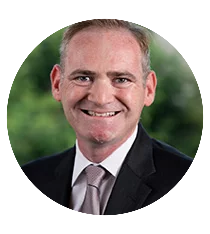7 Essential Non-verbal Communication Tips to Increase your Team’s Interpersonal Skills
We’ve previously talked about how important body language (non-verbal communication) is when it comes to improving your confidence and mental state as a salesperson.
No advice or training in sales techniques is complete without a primer in body language and how you can use it to your advantage in a sales interaction.
If you are looking for some quick and easy tips to improve your team’s communication skills and success rate when it comes to selling, the following 7 non-verbal communication tips are a great place to start:
1. Assume an open posture
How you position your body affects both how others think and feel about you and how you view yourself. A closed posture with hunched shoulders, folded arms or crossed legs and a lowered head makes your body smaller and is a submissive pose. Crossing your arms can also send the signal that you are mentally blocking the other person and not interested in what they have to say.
Try to be aware of your posture during meetings with prospects and keep your body position open – not only does this show that you are interested in them and willing to listen to what they have to say, but it can also cause actual physical changes in your own brain chemistry that can help you to become a better salesperson (read our article on Amy Cuddy’s research into body language for more information about this).
2. Maintain eye contact
If you do not look someone in the eye, this can be seen either as submissive or that you may have something to hide – neither of which is a good thing when you’re trying to make a sale! On the other hand, too much or too intense eye contact can seem domineering and be intimidating to the prospect.
Role play is a good way of practicing the right amount of eye contact during a sales interaction.
3. Mirror body movements
People with a close relationship often subconsciously mirror each other’s movements. If you watch a couple you will often see that when one person crosses their legs or scratches the chin, the other person may well copy a few seconds later. This mirroring is a biological reaction that demonstrates a bond with another person.
You can also use this quirk of human behaviour by consciously mirroring your prospects movements and body language in a subtle way. This will make them feel like you agree with what they are saying and helps to create a feeling of familiarity.
Subtlety is the key here – you don’t want the prospect to be aware that you are mirroring them.
4. Make sure your non-verbal communication matches your verbal communication
In other words, ensure that your body isn’t saying a different thing to your mouth. If you say “yes” while you’re shaking your head, this sends mixed signals to the person you’re talking to and they may well not take what you’re saying seriously.
Try to be aware of your body language when you’re talking and reinforce your words and tone of voice with your movements.
5. Use facial expressions
Your facial expressions can speak volumes. Try using your expressions in a subtle way to emphasise your point or to make your feelings known with no words required.
Smiling shows that you are interested and happy to be talking to the customer; raised eyebrows indicate questioning or surprise; pursing your lips and frowning slightly can demonstrate disagreement.
6. Be aware of personal space
Everyone has an invisible barrier around them and if someone comes within this barrier it can feel very uncomfortable and confrontational.
Salespeople should be aware of their prospect’s personal space (the actual size of which will vary depending on the culture of the person they are talking to) and make sure not to invade it.
On the other hand, leaning in slightly towards a prospect can help to create a feeling of familiarity and closeness and can help to increase their confidence in you.
7. Stay aware of the prospect’s non-verbal signals
As well as controlling your own body language, looking at the non-verbal signals of a customer or prospect can help you to work out what they are really thinking as opposed to what they are saying. Reading body language can help you to judge how interested the prospect is in what you are saying and anticipate resistance before they even open their mouth.
Developing your interpersonal skills is much more than what you say and how you say it. By making subtle changes to your body language and non-verbal communication, you can become more likeable, persuasive and confident, which can help you to make more sales in the long run.
(NOTE: Want to see how your practice marketing measures up against the best in class? Take this 5-minute quiz to see how you stack up in the 9 areas of practice marketing and get specific tips and advice on how you can improve your weak points and better leverage your strengths).
About the author

LiveseySolar
LiveseySolar’s mission is to double the size of 150 cataract and refractive surgery practices. Using our proven marketing frameworks and deep market knowledge, our customers can predictably and sustainably grow their practices so that they can enjoy a healthy balance between both worlds – a successful private practice and a happy life.
Related Posts
Meet our Co-Founders
We’re passionate about helping leaders of high-quality, growth-minded practice owners double their practice revenue

Rod Solar
Founder & Scalable Business Advisor
For over 20 years, I’ve helped ophthalmology entrepreneurs scale their private practices. I specialise in doubling revenue within three years by offering a proven framework, hands-on experience, and a team of experts who implement what works. We take the guesswork out of growth and scale, so you can focus on delivering exceptional patient care while maximising the value of your business.
LiveseySolar completely transformed the way we were approaching this… We’ve gone from having just the dream of having a practice to having a practice up and running with people making inquiries and booking for procedures… It’s extremely pleasing. We feel lucky we connected with LiveseySolar.
— Dr Matthew Russell, MBChB, FRANZCO, specialist ophthalmic surgeon and founder of VSON and OKKO

Laura Livesey
Founder & CEO
I’m the co-founder & CEO of LiveseySolar. I’ve developed powerful eye surgery marketing systems that increase patient volumes and profits for doctors, clinics, and hospitals, since 1997.
Rod and Laura know as much about marketing surgery to patients as I know about performing it. They are an expert in the field of laser eye surgery marketing. They know this industry inside out. I believe that they could help many companies in a variety of areas including marketing materials, sales training and marketing support for doctors.
— Prof. Dan Reinstein, MD MA FRSC DABO, founder of the London Vision Clinic, UK











